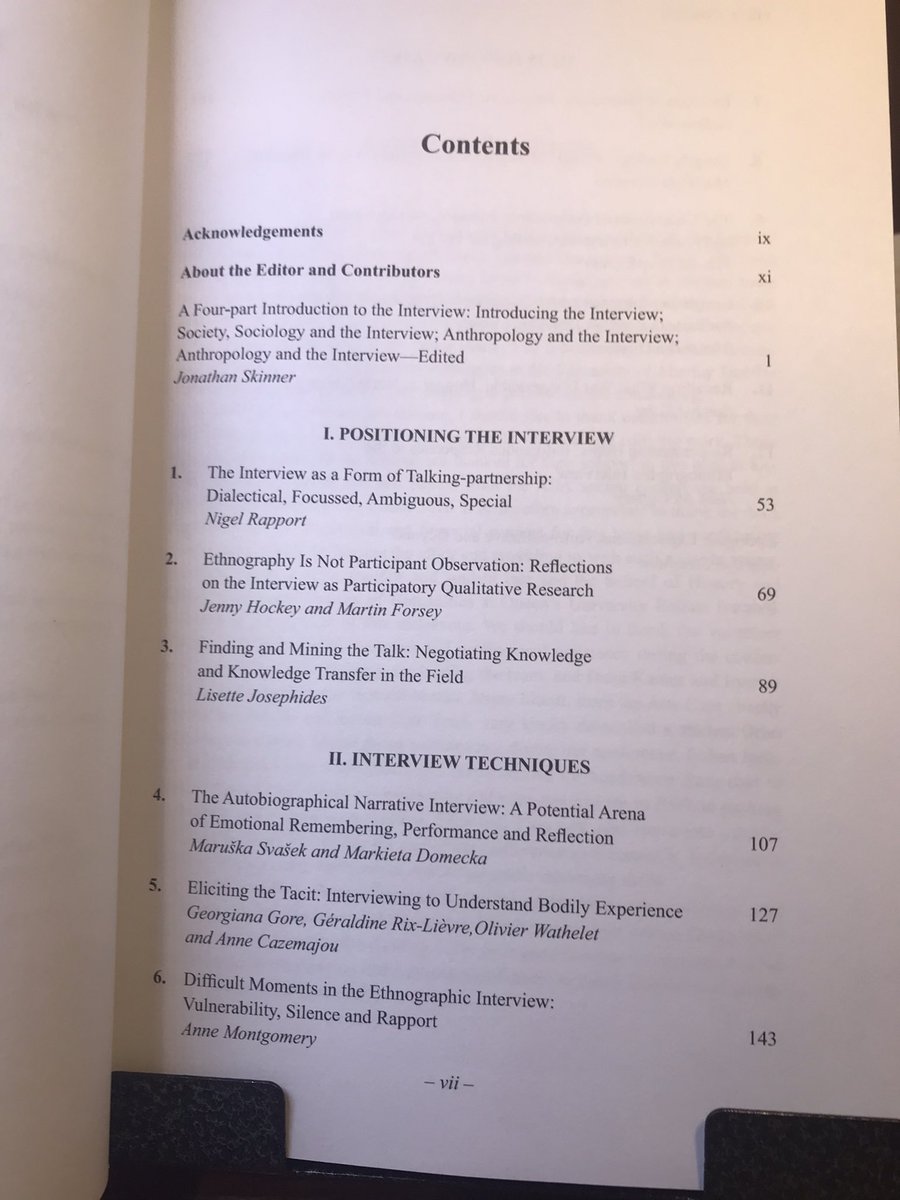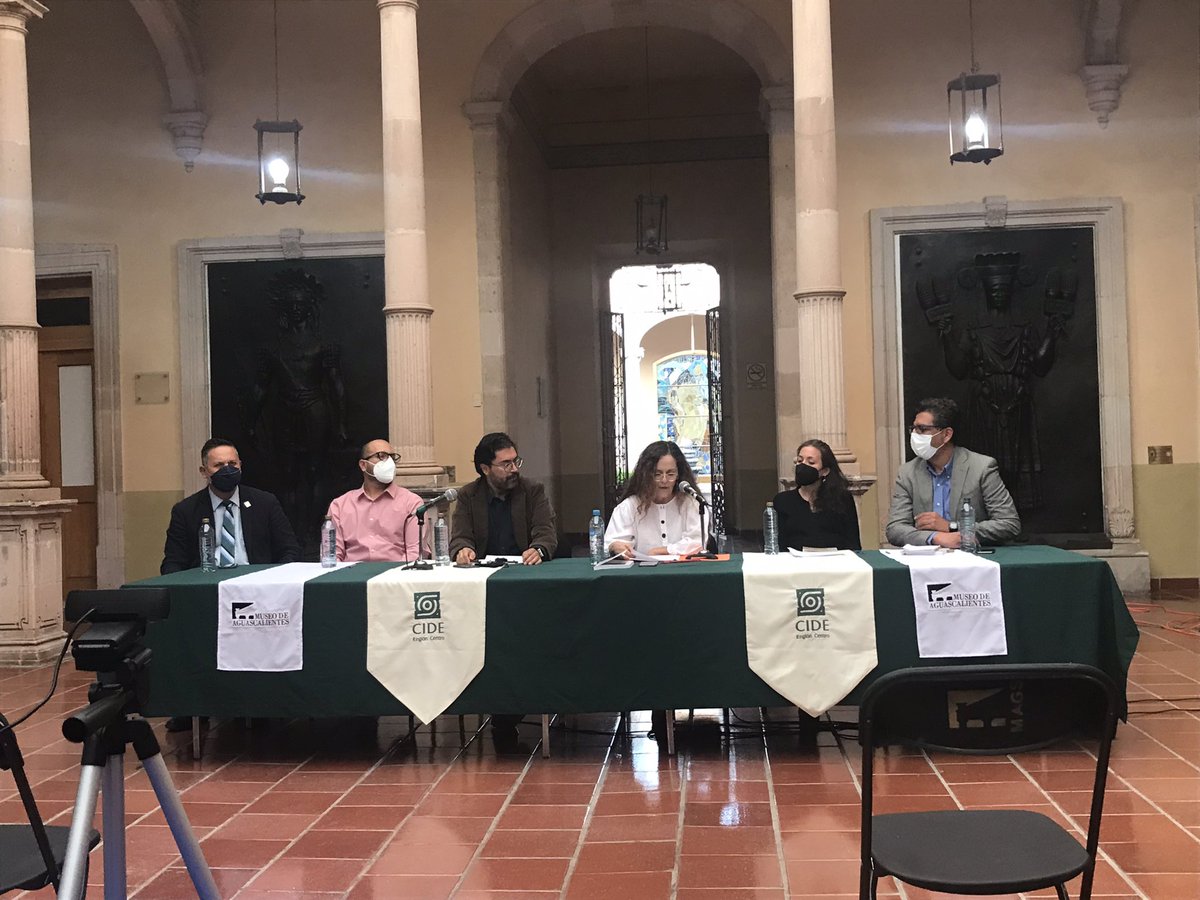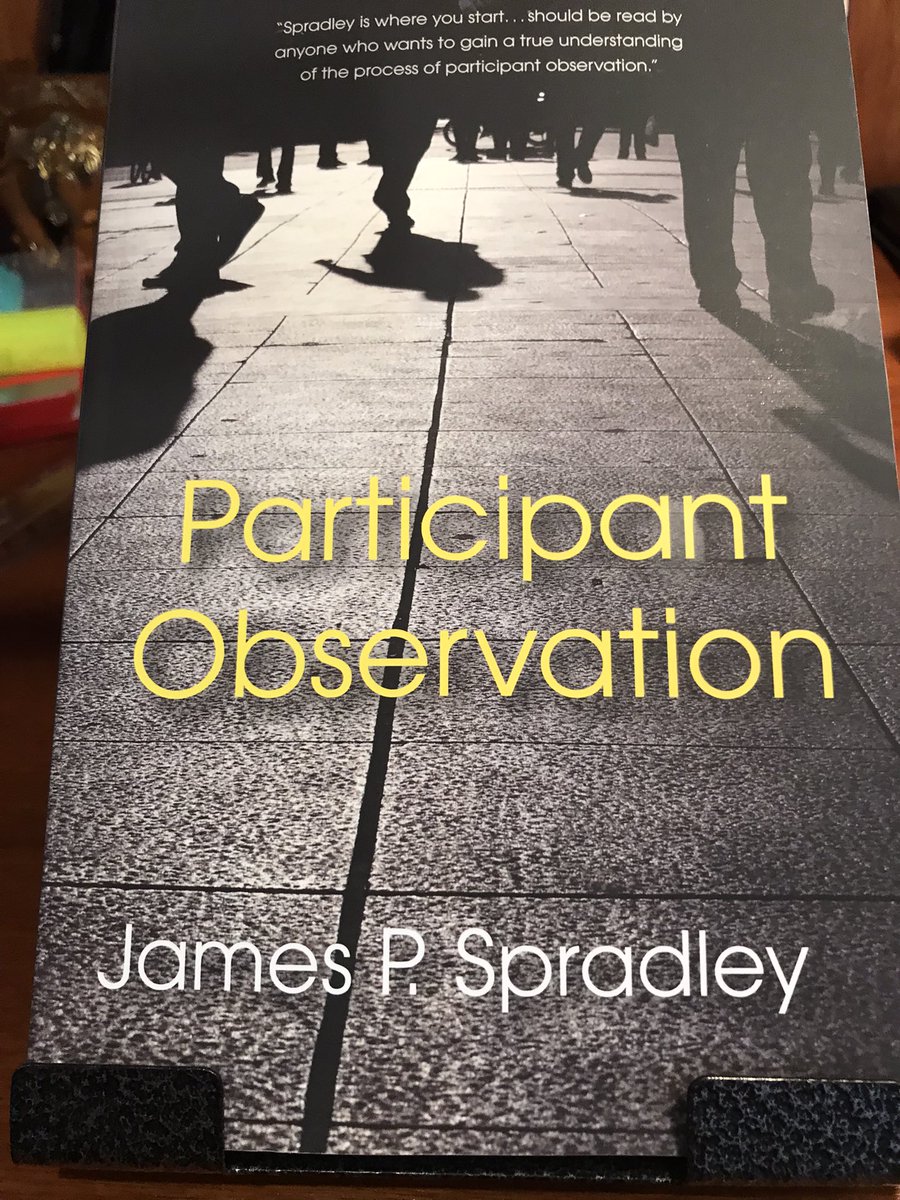
#RPVBooks sometimes I forget Jonathan Skinner’s brilliance. But as my reading notes of his book on participant observation indicate, the man is brilliant. In “The Interview: An Ethnographic Approach” Skinner edits a four part introduction to interviews as part of ethnography. 

I’m a political scientist and a human geographer who uses ethnography as one of a suite of qualitative methods within a mixed methods framework. Obviously my training colours what I think and how I use what I read. I say this because reading this book shocked me. 





Skinner writes in the introductory chapter that at a conference on anthropologists and the interview, someone told him: "I don't do interviews in my ethnographic fieldwork".
To me, it is possible to conduct an ethnography without interviews. But they *feel* intrinsic.
To me, it is possible to conduct an ethnography without interviews. But they *feel* intrinsic.
I'm not an anthropologist and I am not trained by an anthropologist or operate within the field per se (though I did attend and present at an economic anthropology conference and I do read anthropological literature). So to me, that phrase that Skinner mentioned sounds weird.
At any rate, this Skinner edited volume is phenomenal. There are theoretical, conceptual chapters that are intended to force the reader to have a conversation with themselves on how they see an interview, and how they might conduct an ethnographic interview. At the same time...
... you will find empirical chapters that describe the experience of ethnographers who conduct interviews within a multitude of settings.
What I find extraordinarily appealing is that even the conceptual chapters provide extensive transcripts of interviews conducted by authors.
What I find extraordinarily appealing is that even the conceptual chapters provide extensive transcripts of interviews conducted by authors.
I don't know Skinner personally so I have no way to know if he intended for the volume to be so pedagogical and instructive, but it turned out that way. Seems to me like a foundational volume for the entire ethnography community.
10/10 recommend
</end thread>
10/10 recommend
</end thread>
• • •
Missing some Tweet in this thread? You can try to
force a refresh








